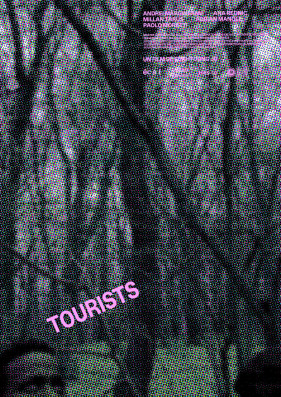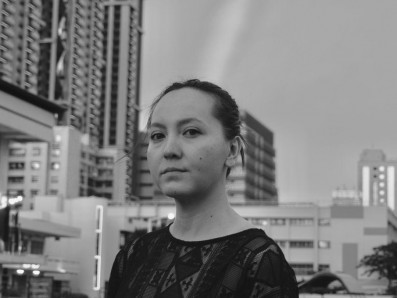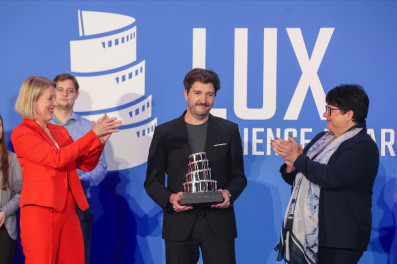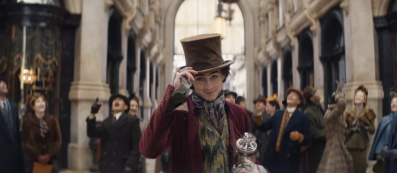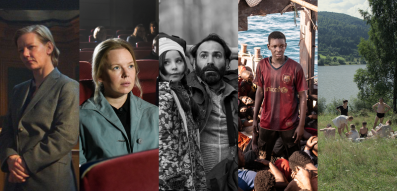Father - A realistic depiction of the suffering of Southeast Europeans
The most complex work of Srdan Golubović up to date is here!
A village woman, on the verge of a nervous breakdown, drags her children - a girl of about nine and a boy of about twelve - to the old factory. Standing at the entrance, she starts shouting at the workers and management present. She threatens that if they do not immediately pay the wage arrears to her husband, she will pour gasoline on herself and her children and set them on fire. The silence of disinterest echoes in the air for a moment and then the woman begins to sprinkle gasoline on the children, who are trying to escape their cruel fate. Then, at the height of her despair, she spills the rest of the bottle on herself and lights a fire. The shockingly dark opening scene of the Father, the latest work by Serbian director Srdan Golubović - known for the films "Absolute 100" and "Circles" - awakens nausea and anger with its cruel realism and is an introduction to a black socio-political story based on true events in Serbia.
A window into the real problems of the average Southeast European
After the incident in the factory, the film introduces us to the protagonist Nikola-played by Goran Bogdan in probably the most difficult role in his career. Nikola's wife was placed in the hospital, and the children were taken away by the social workers. To return them, the father must provide basic living conditions for his family before the arrival of a committee that should assess the possibility of custody.
When the assessment becomes a farce, and Nikola, according to their verdict, can't take care of the children by working only on daily wages - which has been his main source of income since he lost the job in a massive wave of layoffs at the factory - and local government officials do not allow him to see children, he decides to walk 300 kilometres from his village to Belgrade, where he intends to personally appeal the verdict to the competent minister.
What distinguishes the Father from other similar works from the region?
There is a lot that Golubović manages to incorporate into his film. On the surface, it is, of course, another ex-Yugoslav drama about the lucid abyss of bureaucracy, the oppressed civil servant and the dysfunctional system, both in the social and political spheres of life.
However, there is something that sets Father apart from numerous similar works. Director Golubović builds the world of his film with a lot of attention, realistically setting the main conflict, both via dialogues in his script and through acting. The very representation of the blatant corruption of bureaucrats never becomes a caricature and there is no hopeless unnecessary despair. Golubović also manages not to drown the viewers with unreasonable darkness by implementing the absurdly sublime empathy of other, morally unstable characters, that surround his protagonist.
The world against the father
Most of the characters around Nikola have a grey / black moral set of values and the jobs they do, which is why Nikola's interactions with them seem intense, but still very interesting as they are revealed. Probably the best example of these characters/situations is the moment when Nikola meets a migrant smuggler, that takes a lot of money and deceives people who need help, while on the other hand for Nikola's fate he is there to offer free transport and possibly a little more help if it becomes necessary. Similar scenes occur later with government officials, both the minister from Belgrade and a local social worker who was one of those in the custody assessment that handed down a harsh verdict against Nikola.
As the film is based on true events, director Golubović made a smart desition to showcase how media image and visibility play a significant role as the case moved from a small local newspaper, through one random TV crew interested in the story, all the way to the trending topic. This aspect of the film is so well covered that it goes to the point where an oppressive statesman who has a dose of empathy, acts this way aware of the role of a positive media image, which is the best of his interest, of course.
Mentality - the biggest obstacle to community progress?
If one segment of the film stood out that is more influential than the others, it would surely be the end in which, after a difficult and arduous journey, director Golubović does not give the protagonist a moment of bliss or harmony, but rather gives him one last violent blow, exposing Nikola once more to shamefully rotten society that surrounds him.
All in all, Father is a powerful social drama depicting the crumbling society of Southeast Europe that is beginning to live only from dry empathy for others and hopes for a better tomorrow. Golubović's most complex film to date could certainly be seen as a Europeanized version of Wenders' legendary work Paris, Texas with the painful knowledge that what is being shown is a hyper-realistic life situation from a region on the edge of Europe.


